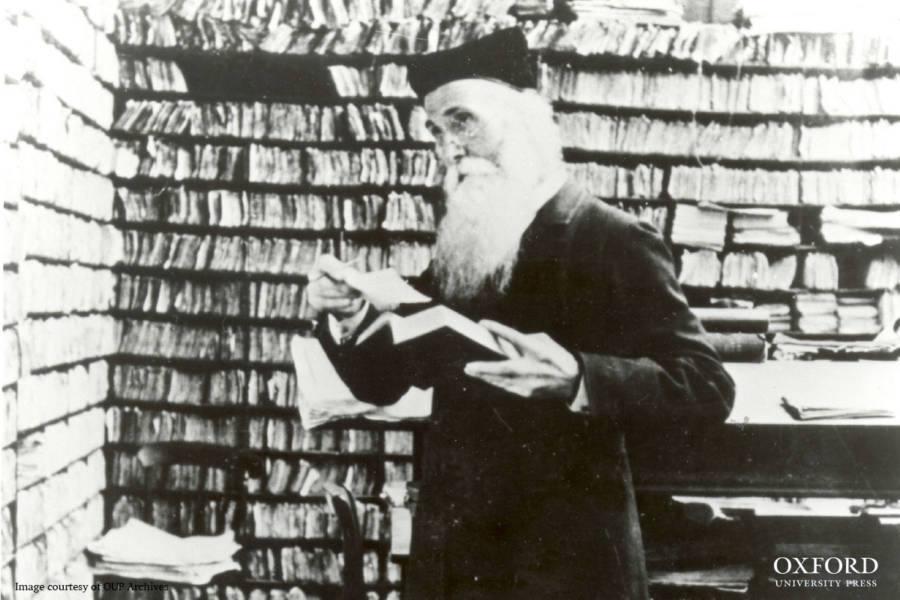Minor’s Contributors To The OED

OUP ArchiveMurray standing in his scriptorium, looking over a source (date unknown).
Believing Murray to be one of the overseers at Broadmoor, it wasn’t until 1891 that the surprised Murray met Minor in his cell.
Eight years later, Murray wrote that without the doctor’s contributions the OED would lack four centuries’ worth of quotations and word origins. Murray also referred to Minor as a good Christian man who sent work to the editorial team every week. Murray wrote that only one individual contributed more to the OED than Minor.
Many of Minor’s sources were travelogues from the 1600s and 1700s. Reading about travel was a hobby of Minor for good reason.
The doctor was born in Sri Lanka to American missionaries, and he didn’t live in the United States until he was 14. Psychologically, Minor could imagine a life in another country as therapy for his condition. His mental wanderings let the prisoner focus on something other than his psychosis.
John Fryer’s travels in East India and Persia, published in 1698, served as a source for 1,000 quotations in the OED. One such word is “guz,” which is an Indian measure of length.
Another source for Minor’s indexes came from political discourse and satirical essays on city life. In one such essay, published in 1608, Minor found the word “colander” on page 102, “countenance” on page 10, and “ulcerated” on page 12.
Upon receiving Minor’s indexes, editors compared his entries to those found by other people. The earliest entries located by lexicographers became the earliest known use and origin of the word.
Quotes compiled by volunteers show up in the OED as a possible usage of the term. Forty-two of Minor’s indexes appear in the Oxford English Dictionary.
Scholars believe his is responsible for more than 10,000 individual entries in the OED.





